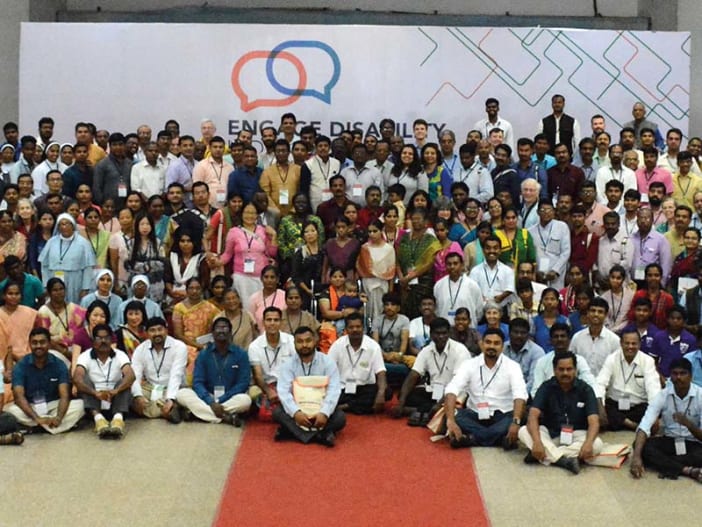In India, more women die of complications during pregnancy and childbirth than from any other cause. Nearly all these deaths are preventable. Many health problems during pregnancy are not recognised or treated because of poor access to healthcare.
Many problems are caused because women are often married at a young age, as child brides. Young mothers under 20 years of age are five times more likely to die in childbirth. They suffer complications with pregnancy because their bodies are not yet mature enough. High blood pressure, blocked labour, premature births and low birth-weight babies are much more common with very young mothers. Cultural attitudes value boy children more than girls. This means that girl children are traditionally fed last and given less. Therefore many are malnourished and anaemic before they become pregnant.
Medical care for women
The Emmanuel Hospital Association (EHA) is a network of hospitals and community health projects in north India. Village women do not like to be examined by male doctors because of religion, caste and traditional beliefs. In rural areas, there are not enough women doctors, so this prejudice means that fewer women and children access medical services. To fill this gap, EHA set up a training course for nurses to give specialised care to women and children. The use of skilled attendants is known to help decrease health problems and deaths in childbirth. High risk cases can also be identified in advance and referred early for hospital care, reducing critical delays in decision making when there is a complication.
The course covers reproductive health, midwifery and sexual health. The nurses are trained to provide counselling and information on planning pregnancies, and healthcare for teenagers. Language classes help the nurses gain confidence in English which is used in hospitals. Theory lessons are followed with daily practical sessions in established community projects where there are good relationships with local people. These sessions focus on midwifery and the care of newborn babies.
Teaching manuals must be simple, relevant and easy to use and kept up to date. They should be small so they can be easily carried around as reference books and should focus on the issues that will directly affect the health of the woman or her baby.
Follow-up is also needed. Monitoring and evaluation during the course and in the community helps to identify gaps in training. After training, nurses need continued updates and support.
Sharing health messages
The reputation of a well-run clinic will soon spread by word-of-mouth. Here are some practical methods that we use to encourage access to reproductive and child health services:
Reproductive and Community Health (RCH) centres Trained RCH nurses run rural centres to make healthcare accessible for local women and children. Clinic hours should meet local needs.
Women’s groups Forming women’s groups in local communities can help the work of the RCH nurse at the clinics. Village women can collect information about local needs, and share health messages and information about available services.
Youth health groups Teenage boys and girls are key groups to target for teaching about sexual health, changing risky behaviour, and preparation for marriage and childbirth. Young people can then be better informed about how to access RCH services when they need them, and share health messages with their parents. In one project, the young men responded to local needs by organising an ambulance service of vehicle owners in the community.
Literacy programmes Village literacy programmes for women are another opportunity to provide health education and information.
Home visits RCH nurses build relationships with families through home visits. As well as health issues, they can talk about other issues such as income-generation opportunities, saving for health, gender discrimination and domestic violence.
Village fairs are a popular way to share information with the wider community. Role plays, songs and information stalls are always well attended.
Preventing problems
Building good relationships with government health centres, other NGOs and other local health providers can avoid conflict, confused messages and competition.
Some women may still refuse specialist care. Husbands and mothers-in-law are usually the decision-makers, so can also cause critical delays in accessing care. It is important to include them in group and family discussions. One of our projects started a ‘mothers-in-law group’ and met with them regularly. The key messages were:
- Every pregnancy carries a risk.
- A healthy mother is more likely to have a healthy baby and be able to care for her baby and her family.
- Three check ups during pregnancy will help detect problems early and make a safe delivery more likely.
Holding village meetings, street plays or video shows in the evening allows men to participate after work, and give their views and perspectives.
Dr Ann Thyle is Regional Director for the Northern Region and Reproductive Health Coordinator for Emmanuel Hospital Association.
Emmanuel Hospital Association
808/92, Nehru Place
New Delhi – 110019
India
Email: [email protected]
Website: www.eha-health.org








